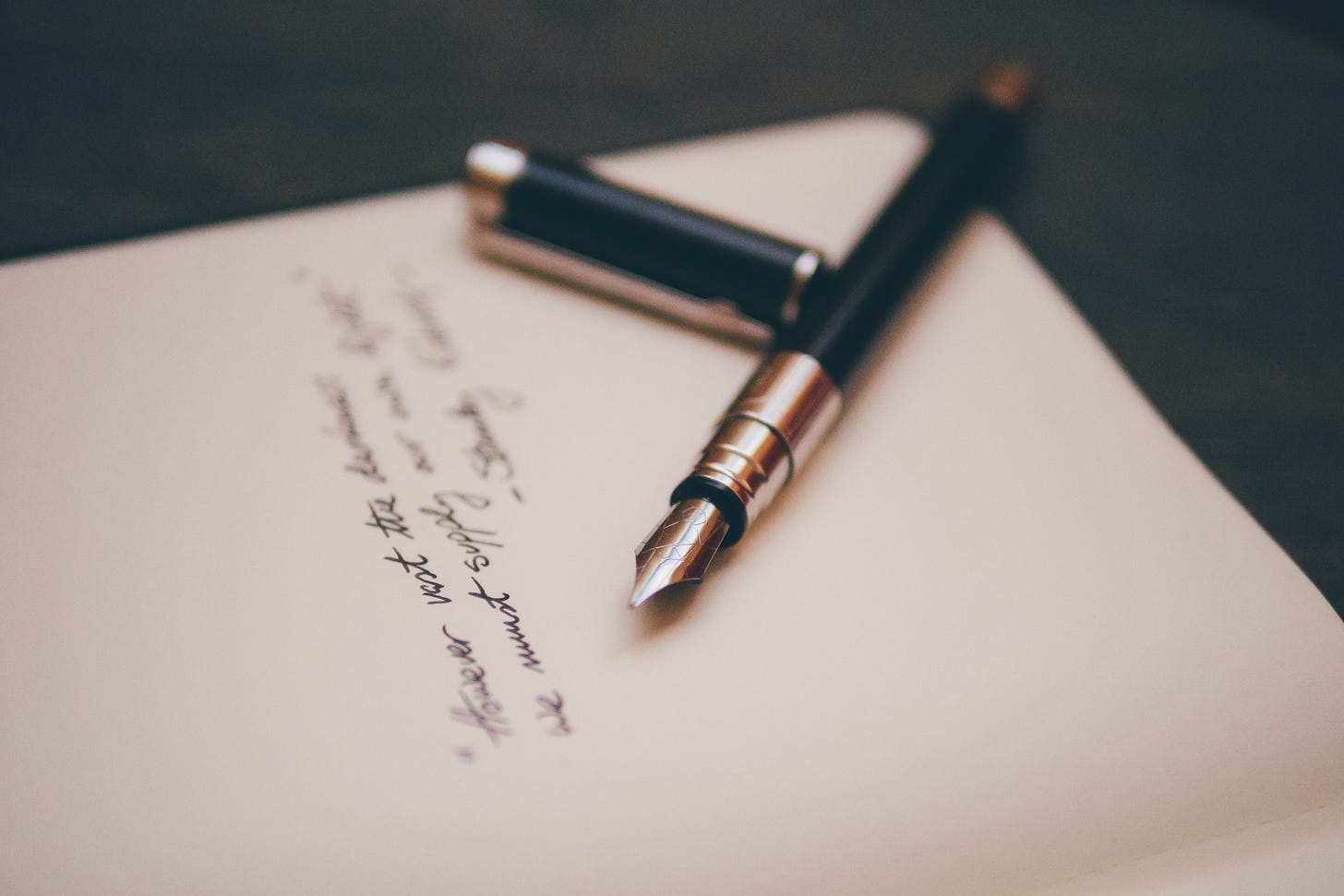Welcome to the first Sunday Poem! Most Sundays, I’ll drop a poem in your inbox with a little bit of backstory, leading up to my book release in May. I thought it might be fun to start with some old favorites from my first collection, Ruins and Kingdoms.

When I See It
I know poetry when I see it.
How it dances and sings and leaps
across the page
how it shapes the white space
breathing life into ink marks and wood pulp
where there was once nothing.
I know poetry when I see it
where only the essence of a truth is compressed
in a line so small, but so full that
you read it over and over again
just to know it by heart.
You write it down word for word
letter for letter
period for period
for wonder of what it felt
to write it.
I know poetry when I see it
standing on my toes
straining for a glimpse over
the shoulders of giants
feeling small and speechless
in their presence
Sometimes
I feel the surge of words
begging to be let out.
I hear them whispering in the notes of a song
or the voice of a friend
or a sudden epiphany
I doubt their worth and wonder if they matter,
and if they could mean anything
to anyone
but me.
But I write them
(or at least I try to)
desiring to honor in the smallest way
the poetry I’ve seen.
Like a little girl
in her mother’s high heels
five sizes too large.
***
Maybe it was because I really missed student life. Or maybe, a couple months after completing NaNoWriMo, I just wanted to keep riding that wave of deadlines and community. Whatever it was, I signed up for a creative writing class at the local community college a couple years after finishing my degree. With visions of sharper fiction skills that could whip my mediocre novel into shape, I spent one evening a week writing, reading, and workshopping away.
I hadn’t written much poetry in a while. There was the year or two after I discovered I could write poems in 10th grade where I churned out poem after poem — mostly short rhymey ones about faith and hope and how cool it would be to die for Jesus. (It was the niiiiiiiiineties!) Now here I was, about 10 years later, puzzling through a assignment to write a haiku, a sonnet, and a free verse poem. About anything. Absolutely anything.
The haiku? Easy. 5-7-5. Just your basic English haiku. (I am now fully aware that haiku is way more complex than that.)
The sonnet? Less easy, but I wrote a classical sonnet about the ocean that I actually still like. (And my teacher noted how impressed she was that I managed to follow all the rules, warming my words-of-affirmation-craving heart.)
Free verse? Ah. Why was this one so hard?
I hemmed and hawed and procrastinated. What even is poetry without rules? I knew some poets could do it and make it look effortless. I knew somehow, there was an alchemy that transformed A Bunch of Words Split Into Lines into something lyrical and true, an honest-to-goodness poem.
I didn’t know how to do that. So, I wrote a phrase: “I know poetry when I see it.” Then kept writing, letting ideas and images pile together.
Later on, I would learn that I’d fumbled my way into the tradition of ars poetica, contemplating the how and what and why of poetry in the form of the poem. It felt like wandering into a party with all the giants of the craft, underdressed and insecure, and somehow finding the smallest spark of belonging.
I stopped writing fiction after that class. Maybe I’ll try again one day. Who knows?
But I didn’t stop writing poetry. Almost 15 years later, this poem still rings true.


